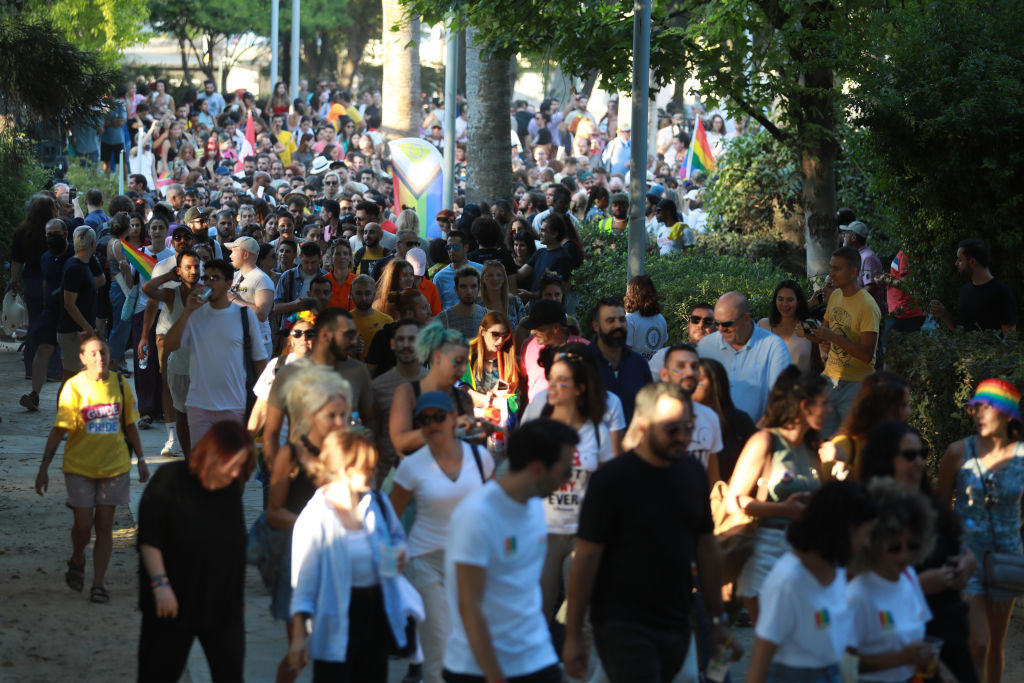In a recent piece for Euronews. Piero Cingari waxed lyrical about Spain’s economy. Things have never been better in the EU’s second largest country, according to the financial analyst. “Spain’s economy,” he suggested, “is projected to grow by 1.7 per cent in 2024 and 2 per cent in 2025, surpassing the European Union’s average of 0.9 per cent and 1.7 per cent, respectively.”
However, a strong GDP tells us nothing about the welfare of the people. Although the Spanish economy is strong, many Spanish people are suffering.
The primary purpose of GDP is not to evaluate the welfare or well-being of individuals. Rather, it was specifically developed to gauge the production capacity and economic growth of a nation.
GDP per capita is a better indicator of how people are actually doing.
Spain’s GDP per capita stands at just €28,276, well below the average for the Euro Area, which stands at close to €40,000.
Suicide rates in Spain are at an all-time high, In a given week, as many as 77 people commit suicide in the land of sun, sand and sangria. Young people appear to be the worst affected. According to a study conducted by Madrid’s Complutense University, since 2019, there has been a significant rise in the suicide rate among the country’s teenagers. More specifically, the number of suicides among individuals aged 12 to 17 has increased by over 30 per cent since 2019.
At the same time, there has been an “alarming surge” in youth crime, including acts of sexual assault.
In September of last year, the State Attorney General’s Office sounded the alarm on the increase in crimes being committed by young people. This “criminal explosion,” according to the annual report, required (and still requires) urgent addressing. Of particular concern to the authors of the report was the 45 per cent rise in sexual assault charges in 2022 compared to 2021. Rather incredibly, since 2017, sexual assault charges have risen by 116 per cent. Young males appear to be becoming more aggressive and predatory in nature. Furthermore, the report also noted a surge in violence within families, cyberbullying, and a 15% increase in homicides committed by young individuals. Finally, the report pointed out incidents of clandestine street fights organized by youth groups in cities like Malaga.
The devil, they say, makes work for idle hands. And right now, Spain has millions of idle hands. The EU unemployment rate stands at about 6%. In Spain, however, it’s close to double this figure.
As Euronews reported in February, Spain is facing challenges with rising unemployment for a number of reasons, including stringent labor market regulations, which also extend to the housing and healthcare sectors. These regulations, as the piece highlights, make it difficult for employers to hire or dismiss employees as needed, leading to a dual labor market in the country. This results in the prevalence of two main types of employment contracts – regular open-ended contracts and fixed-term temporary contracts.
As a result, younger, less skilled, or semi-skilled workers, as well as immigrants, bear the brunt of unemployment, often being hired on temporary contracts. This is primarily because they are in high demand in seasonal industries like tourism, construction, and hospitality. Although these sectors may thrive during peak periods, they are also notorious for experiencing long periods of inactivity. Moreover, they are extremely vulnerable to economic downturns.
To compound matters, the country is consumed by a migrant crisis. A recent report from Reuters shines a light on the sheer scope of the problem. Last year, Spain witnessed a significant rise in illegal migration, with more than 56,000 migrants entering the country through unauthorised means, marking an 82 per cent increase compared to 2022.. As I write this, the influx of migrants shows no sign of abating. This perhaps helps explain the wave of violent crime sweeping across Spain. In truth, similar to other regions in Europe, migrant crime has been a major problem in Spain for a number of years. The crimes are often shocking in nature, with military-aged men raping senior citizens and machete-wielding lunatics killing innocent civilians.
To conclude, the Spanish paradox is not really a paradox. The economy is thriving, but the people are not. A strong GDP tells us absolutely nothing about the psychological and physical wellbeing of the masses. As is clear to see, the average Spaniard is in considerable pain.





The tractor referendums: The EU has a choice – more democracy, or more farmer protests?